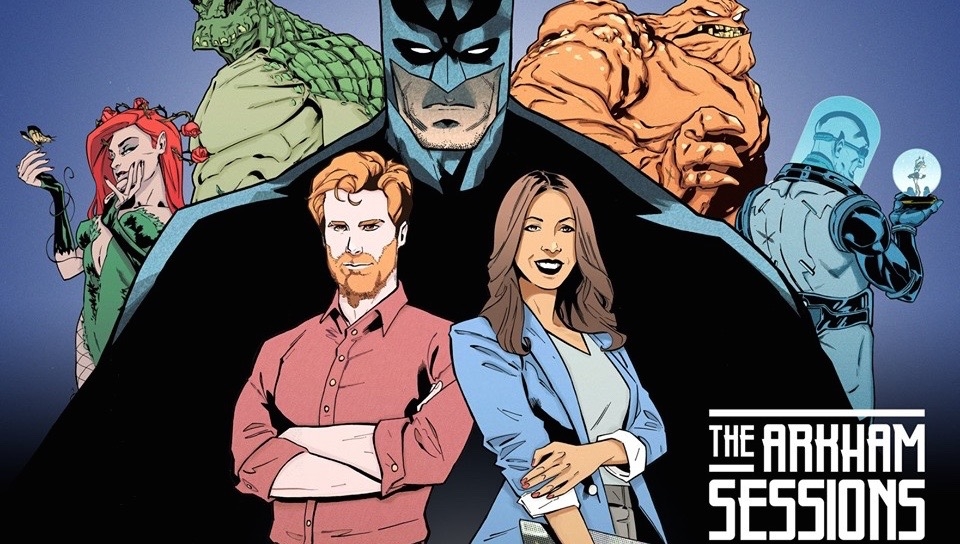The Arkham Sessions, hosted by Dr. Andrea Letamendi and Brian Ward, is a weekly podcast dedicated to the psychological analysis of pop culture, including Batman: The Animated Series, Steven Universe, and Doom Patrol. Nostalgic, humorous, and even a little educational, each episode promises to lend some insight into the heroes, villains, and classic stories of the Dark Knight and more!
The Arkham Sessions, Ep. 161 – The Snyder Cut
The “Snyder Cut” has been called many things–bloated, self-indulgent, unnecessarily long, a toxic conspiracy. Talking about the 4-hour film without mentioning the fervor surrounding it is nearly impossible, so Drea and Brian begin the show by framing the film’s storytelling through the context of its cultural positioning.
It was released during the later lockdown stages of COVID, amidst a time in which many of us, exhausted from the stress of an ongoing crisis and relentless promises of normalcy, embraced a directness in approach and unconventionality in our entertainment media. Drea and Brian briefly tackle the controversial reactions to the film (and pointed out some differences between the original edit and the Snyder cut).
But, for much of this episode, they dive into the prominent character arcs. Batman, for instance, realizes the potential of meaningful relationships in a pre-apocalyptic world, pushing past his impulse to pursue heroic acts and their narcissistic gains. The young Flash is refreshingly ebullient and wide-eyed, while also undeniably self-doubting and apprehensive about his value on a superhero team. Cyborg, the most psychologically and physically harmed member of the team, stands out as the heart of Snyder’s storytelling. Dealing with the aftermath of his mother’s death and his own disfigurement and transformation into a mostly robotic slightly-human creature, Cyborg feels purposeless and detached from society. But by holding himself responsible for saving Earth (and thereby embracing his individuality), he raises many themes about independence and identity.
The Snyder Cut, though not cinematically perfect, is daring and bold, unwittingly blunt and aspirational. As a story that was “interrupted” and had a chance to be reclaimed and retold, its retribution is powerfully present. For anyone who grew up with the iconography of DC Comics characters, it is hard not to get swept away by the psychology of the film.
Have psychology-related questions about Batman? Write to us via Twitter, @ArkhamSessions, or on Facebook. Or visit our official website.
And, don’t forget to subscribe to The Arkham Sessions on Apple Podcasts to get all of the latest episodes! And, be sure to join us on Patreon.

